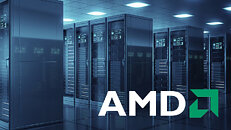
New Titanfall Game Axed by EA, Layoff Cuts Hundreds of Jobs
In the latest blow to the gaming industry, Respawn Entertainment, a subsidiary of EA, has officially announced the cancellation of two new games it had in the early stages of development. The official announcement does not specify what the cancelled games were, but previous reports from early this month indicated that Respawn had quietly canned a game in the Titanfall IP. It seems somewhat like this announcement from Respawn is simply confirmation of the cancellation that was previously already leaked. Along with the cancellation of the game, and likely more importantly, Bloomberg claims that the "targeted team adjustments" Respawn mentioned in the release would mean that as many as 100 employees on the Respawn team will be laid off.
As for the rest of the restructuring, Respawn says that it will be focusing its efforts on Apex Legends and Star Wars Jedi. Previous rumors claimed that Respawn was developing a mainline Titanfall 3 game, which will supposedly launch at the 2025 The Game Awards show, which is scheduled for December 11, 2025. It seems as though the Titanfall IP game that was cancelled as of this announcement was something of a spin-off extraction shooter set in the Titanfall universe. This news comes at a time when gaming industry lay-offs seem to be at a peek and shortly after the creation of the United Videogame Workers Union—a union aimed at protecting North American video game workers from exactly these sorts of unexpected layoffs that are seemingly aimed at reducing the workforce in the name of short-term profits.
As for the rest of the restructuring, Respawn says that it will be focusing its efforts on Apex Legends and Star Wars Jedi. Previous rumors claimed that Respawn was developing a mainline Titanfall 3 game, which will supposedly launch at the 2025 The Game Awards show, which is scheduled for December 11, 2025. It seems as though the Titanfall IP game that was cancelled as of this announcement was something of a spin-off extraction shooter set in the Titanfall universe. This news comes at a time when gaming industry lay-offs seem to be at a peek and shortly after the creation of the United Videogame Workers Union—a union aimed at protecting North American video game workers from exactly these sorts of unexpected layoffs that are seemingly aimed at reducing the workforce in the name of short-term profits.
























































